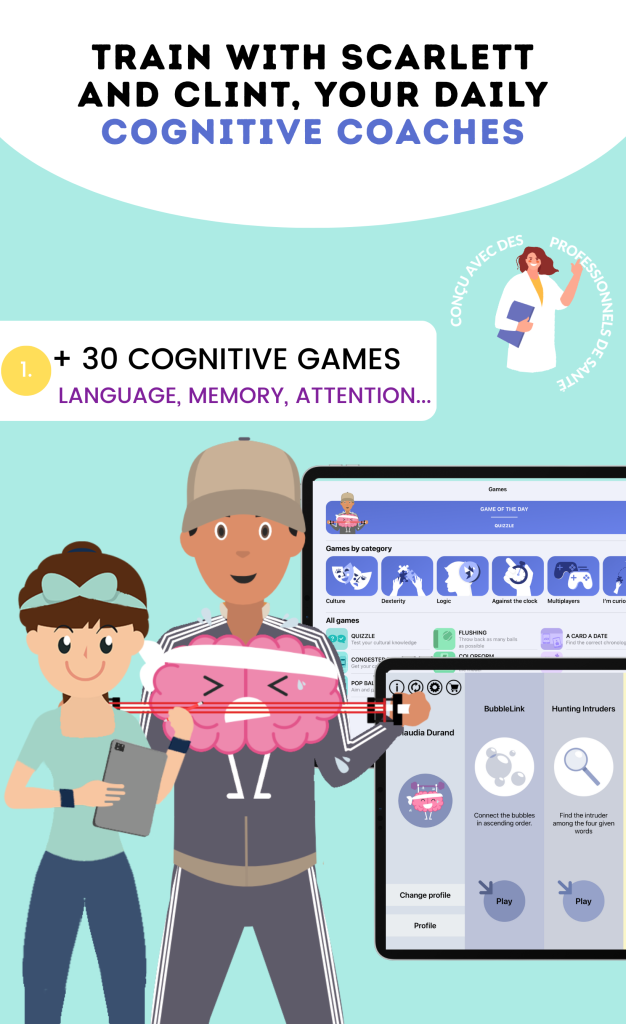Home care is an essential service for elderly people who wish to remain in their homes while receiving the care they need. This can include assistance with daily tasks such as bathing, dressing, preparing meals, and taking medications. Training for home caregivers is therefore crucial to ensure the quality of care and the well-being of elderly people.
Training for home caregivers is essential for several reasons. First, it allows caregivers to develop the necessary skills to provide quality care to elderly people. Additionally, it gives them the knowledge and skills needed to handle emergency situations or specific health issues. Finally, training helps caregivers feel more confident in their role and better understand the needs and concerns of elderly people.
The Importance of Training for Home Caregivers
Training for home caregivers has many benefits. First, it allows caregivers to acquire the necessary skills to provide quality care to elderly people. This includes knowledge of appropriate techniques to assist elderly people in their daily activities, as well as an understanding of age-related specific needs.
Moreover, training enables caregivers to better understand common health issues among elderly people and know how to address them. This can include medication management, fall prevention, and managing chronic illnesses such as diabetes or arthritis.
Finally, training helps caregivers feel more confident in their role and better understand the needs and concerns of elderly people. This can contribute to improving the relationship between the caregiver and the elderly person, which is essential for ensuring quality care.
Key Skills for Providing Care to Seniors
To provide quality care to elderly people, home caregivers must develop certain key skills. This includes both technical, relational, and organizational skills.
Technical skills include knowledge of appropriate techniques to assist elderly people in their daily activities such as bathing, dressing, and moving around. Caregivers must also be trained in medication management, taking vital signs, and other basic medical tasks.
Relational skills are also essential for providing care to elderly people. Caregivers must be able to establish a trusting relationship with elderly people, listen to their needs and concerns, and communicate effectively with them.
Finally, organizational skills are necessary to effectively manage the daily tasks related to caring for elderly people. This includes meal planning, managing medical appointments, and coordinating care with other healthcare professionals.
How to Improve the Quality of Care for Seniors Through Training
Training for home caregivers can help improve the quality of care for elderly people in several ways. First, it allows caregivers to develop the necessary skills to provide quality care. This includes knowledge of appropriate techniques to assist elderly people in their daily activities, as well as an understanding of age-related specific needs.
Additionally, training enables caregivers to better understand common health issues among elderly people and know how to address them. This can include medication management, fall prevention, and managing chronic illnesses.
Finally, training helps caregivers feel more confident in their role and better understand the needs and concerns of elderly people. This can contribute to improving the relationship between the caregiver and the elderly person, which is essential for ensuring quality care.
Technological Tools to Improve Home Care
Technological tools can play an important role in improving home care for elderly people. They can help remotely monitor the health and well-being of elderly people, facilitate communication between caregivers and elderly people, and assist in managing healthcare.
Remote monitoring tools allow caregivers to monitor the health of elderly people from a distance. This can include devices that measure vital signs such as blood pressure and heart rate, as well as physical activity and sleep monitoring devices.
Communication tools can facilitate communication between caregivers and elderly people. This can include mobile applications that allow caregivers to stay in touch with elderly people, as well as communication devices specifically designed for elderly people.
Health management tools can help manage the healthcare of elderly people. This can include mobile applications that allow caregivers to track the medications taken by elderly people, as well as devices that help manage medical appointments and coordinate care with other healthcare professionals.
Effective Communication with Seniors and Their Families

Effective communication is essential for providing quality care to elderly people. Home caregivers must develop certain communication skills to effectively communicate with elderly people and their families.
Communication skills include the ability to actively listen, clearly express ideas and needs, and use language appropriate for elderly people. Caregivers must also be able to adapt their communication style based on the needs and preferences of elderly people.
Effective communication strategies include using active listening techniques, such as repeating information to ensure understanding, and using non-verbal communication techniques, such as eye contact and gestures.
Effective communication has many benefits. It allows caregivers to better understand the needs and concerns of elderly people, which can help improve the quality of care. Additionally, it can help strengthen the relationship between the caregiver and the elderly person, which is essential for ensuring quality care.
The Importance of Safety and Accident Prevention at Home
Safety and accident prevention at home are major concerns for elderly people living at home. Home caregivers must be aware of potential risks for elderly people and implement accident prevention strategies.
Risks for elderly people at home can include falls, burns, food poisoning, and medication-related accidents. Caregivers must be trained to recognize these risks and the measures to take to prevent them.
Accident prevention strategies can include installing access ramps, grab bars, and other safety devices in the home. Caregivers must also be trained in the safe use of household appliances, handling medications, and meal preparation.
Accident prevention has many benefits. It reduces the risk of injury for elderly people, which contributes to improving their quality of life. Additionally, it can reduce the burden on caregivers by avoiding emergency situations and hospital visits.
The Benefits of Continuing Education for Home Caregivers
Continuing education is essential for home caregivers to keep their skills up to date and stay informed about the latest advancements in elderly care. It has many benefits for both caregivers and elderly people.
For home caregivers, continuing education allows them to acquire new skills and knowledge, which can help improve their practice and confidence in their role. Additionally, it keeps them informed about the latest research and best practices in elderly care.
For elderly people, the continuing education of home caregivers ensures quality care and support tailored to their specific needs. This can help improve their quality of life and prevent health-related complications.
Certifications and Accreditations for Home Caregivers
Certifications and accreditations are important means of recognizing the skills and expertise of home caregivers. They can help ensure the quality of care for elderly people and strengthen families’ trust in home care services.
There are several certifications and accreditations available for home caregivers. This can include certifications specific to certain skills, such as medication management or fall prevention, as well as more general accreditations that recognize the overall skills necessary to provide quality care.
The benefits of certification and accreditation are numerous. They allow home caregivers to demonstrate their expertise and commitment to quality care. Additionally, they can help families choose trustworthy home care services and ensure that their loved ones receive the best possible care.
Conclusion: Raising Care Standards for Seniors Through Training in Home Care Tools
Training in home care tools is essential to ensure the quality of care for elderly people. It allows home caregivers to develop the necessary skills to provide quality care, improve their relationship with elderly people, and better understand their needs and concerns.
Moreover, continuing education and certification can help raise care standards for elderly people by ensuring that home caregivers are competent and well-informed. This can improve the quality of life for elderly people and reduce the burden on caregivers.
It is therefore essential to invest in training in home care tools and promote access to continuing education and certifications for home caregivers. This will improve the quality of care for elderly people and ensure their well-being and safety.





